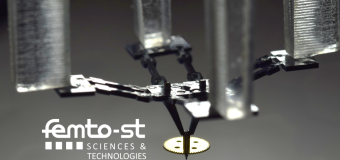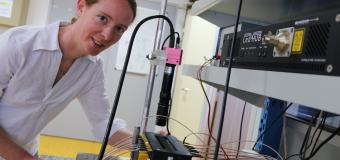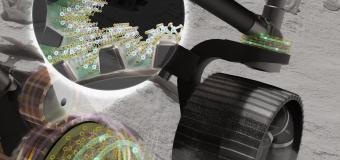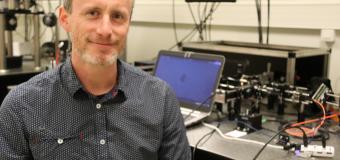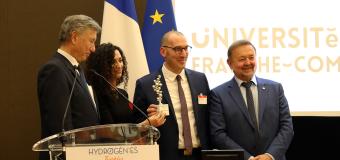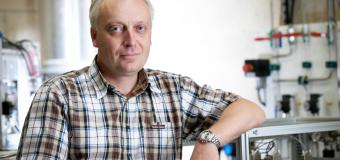European project for the development of sustainable and high-performance bio-based composites
Led by FEMTO-ST and supported by the University of Franche-Comté, the « SSUCHY » R&D project which brings together 17 European partners is entering its final phase. The project is now quite advanced.
Made with vegetal- and animal-based biomass materials, bio-based composite materials today offer many advantages in ecological terms (renewable, recyclable and biodegradable resources), economic and social (availability, production cost, development of agricultural jobs) but also from a technical point of view (lightness, increased mechanical and damping properties). They can thus be an advantageous alternative for metallic or petroleum-based materials. They therefore represent an attractive resource for engineering applications and are the subject of many researches.
The project
In this context, “SSUCHY” is a research and innovation project funded by the European Union (Bio-Based Industries - Horizon 2020) which aims to build a complete value chain of bio-based composites, especially from hemp and wood.
It starts from the biomass supply (selection of hemp varieties, optimization of cultivation practices) to focus on transformation processes related to the reinforcement of plant fibers on the one hand, and bio-based polymers on the other hand, up to the design and manufacture of composites and sandwich materials before proposing the realization of specific prototypes and demonstrators.
SSUCHY’s approach is implemented within the framework of a multi-level eco-efficiency approach covering experimental aspects, modelling, design, process optimization and complete life cycle analysis of the products developed.
Indeed, SSUCHY improves composite functionalities such as mechanical strength, weight reduction, durability, vibration damping, vibro-acoustic control and fire resistance.
The work carried out on the design and characterization of bio-based composites and sandwich panels has led to the integration of some of the materials developed in final industrial demonstrators. Moreover, by the end of 2021, all demonstration prototypes will embark on 100% SSUCHY hemp woven reinforcements.
Prototypes and industrial demonstrators
After three years, the project has allowed to develop four demonstrators in the transportation and leisure sectors.
The first is a high-end bio-based audio loudspeaker (British SME Wilson Benesch) made of an ecological material consisting notably of a woven hemp fabric combined with recycled PET foam with very good aesthetic qualities (particularly in terms of color) but also better vibro-acoustic performance than the current version of the loudspeaker in the low (<80 Hz) and high (> 6 kHz) frequencies.
The second is a cockpit panel for electrical aircraft which has been entirely designed by two project partners, the Bristol Composite Institute and the German SME EADCO GmbH, and whose sandwich structure is made of a composite combined with an aerospace-graded foam with a bio-based content of approximately 40% in weight. This panel, which has reached performance levels compatible with the requirements of the EASA (European Union Aviation Safety Agency) regulations, will be further improved in the final year of the project by replacing the flax fibre skin with hemp reinforcements developed within the project.
The third prototype is a bio-based monocoque scooter frame developed by the Dutch company NPSP BV with the help of Bristol Composite Institute. The objective is to replace a steel frame in order to allow a drastic reduction of manufacturing costs while improving safety and durability.
The latest prototype is a hemp-based trunk loadfloor, compatible with existing production lines. Involving the French company Trèves and the FEMTO-ST Institute, it not only reduces weight and noise in cars, but also provides better resistance to high temperatures and increased damping capacity.
Project completion : end of 2021
During SSUCHY's final year, the partners will complete the production and testing of the demonstration products, while accelerating the dissemination and exploitation of results. In particular, the project will organize, together with other EU projects, a summer school to train master and doctoral students on the basis of recent discoveries on natural fibres, the first of its kind.
17 partners around the SSUCHY project
A competitiveness cluster: Pôle IAR (France)
10 universities and research organizations: FEMTO-ST of the University of Franche-Comté (France), Chimie Paris Tech - CNRS (France), Ecole Nationale d'Ingénieurs de Tarbes (France), Ecole Nationale Supérieure Arts et Industries Textiles (France), Institute of Molecular Chemistry ICMUB of the University of Burgundy (France), Catholic University of the Sacred Heart (Italy), University of Bristol (UK), University of Derby (UK), University of Leuven (Belgium), University of Stockholm (Sweden) 3 SMEs : Wilson Benesch (United Kingdom), Eadco (Germany) and NPSP BV (Netherlands)
3 manufacturers: Akzo Nobel (Netherlands), Linificio e Canapificio Nazionale (Italy) and Trier (France)
Financing/duration
- Start date : 01/09/2017
- End date : 31/08/2021
- Total cost : 7 411 150,71€
- EU contribution : 4 457 194,75 €
SSUCHY has received funding from the Bio-Based Industries Joint Undertaking under the European Union’s Horizon 2020 research and innovation program under grant agreement No 744349
Contact :
Project leader : Vincent PLACET, Applied Mechanics Department, FEMTO-ST Institute
Tel : 33 3 81 66 60 55


